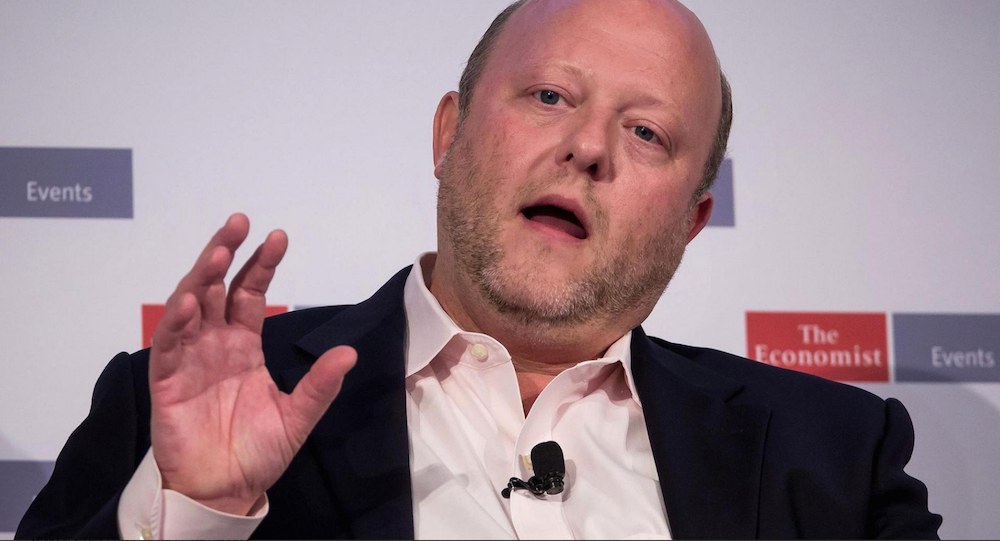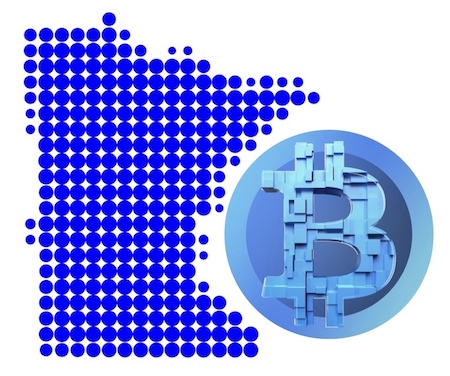(Note: as a followup to my post a while back, So What’s Happening in Bitcoin and Blockchain in Minnesota, I thought it would be interesting to tell you about another Minnesota connection of sorts in the blockchain/crypto world.)
For a serial entrepreneur who got his start right out of college in his home state of Minnesota, Jeremy Allaire has had quite a ride. Soon after graduating from Macalester College in St. Paul, he and brother J.J. founded Allaire Corp, an Internet software tools company. After a couple of years in Minnesota, the firm migrated to Cambridge MA to take a VC infusion. In 1999, it had a successful IPO and soon after was acquired by rival Macromedia for $360 million. Jeremy served as CTO of that firm for a few years, then in 2003 joined VC firm General Catalyst Partners as an executive-in-residence.
In 2004, Jeremy founded Brightcove, an online video platform used by many top media and marketing organizations worldwide. There, he raised close to $100 million in four rounds and had a successful IPO in 2012. He still serves as Chairman of the Board of Brightcove.
In 2013, Jeremy announced the launch of Circle, an Internet-based consumer finance company that aims to bring the power and benefits of digital money, such as Bitcoin, to the mainstream. As CEO of Boston-based Circle, Jeremy has raised $135 million in four rounds of VC, including $50 million led by Goldman Sachs.
Fast forward to today, when CNBC ran a story summarizing an on-air interview it did with Jeremy, wherein he stated, in essence, that all global currencies will become cryptocurrencies. (Emphasis mine.) You read that right! He said every currency in the world, as the article stated, “from the U.S. dollar to the Chinese yuan,” will have its own cryptocurrency version.
“Our view is that all fiat currency will be crypto,” he told CNBC in the interview on Monday, June 18. “It seems inevitable at this point.”
The article describes Circle thusly:
Allaire’s start-up offers a blockchain-powered app that lets people send money to each other for free. Blockchain is the public ledger of activity that underpins cryptocurrencies like bitcoin.
Circle also has a product that lets users invest in cryptocurrencies like bitcoin and ethereum, and another that facilitates over-the-counter cryptocurrency trading for institutional investors.
Circle is now valued at $3 billion and is backed by U.S. investment bank Goldman Sachs and Chinese internet giant Baidu. The CNBC piece also noted that Circle recently said it wants to introduce a new cryptocurrency pegged to the U.S. dollar, called “USD Coin.”
The idea is to speed up transactions made with dollars by using blockchain technology — which maintains a continuously growing digital record of transactions — and reducing the volatility seen in most cryptocurrencies.
It’s not the first so-called “stablecoin” on the market — other cryptocurrencies backed by fiat have been introduced. The most notable stablecoin is tether, a controversial virtual currency which critics have claimed was used to prop up bitcoin prices last year.
Allaire said that Circle’s U.S. dollar-backed crypto would benefit from coming under stricter regulations. The token is being built within an open-source platform called CENTRE, which Circle hopes will be joined by financial institutions and other firms.
Allaire said that the aim of the USD Coin was to bring mainstream financial processes into the world of cryptocurrencies and blockchain technology.
“Our focus with fiat stablecoins is we really think of it as a core building block for a crypto-native global digital economy,” the article quoted Allaire as saying.
“Our interest is in how do we take all of the tasks involved in the financial industry and move those onto a crypto-native infrastructure.”
The CNBC article also added that Circle is looking to add crypto tokens for the Euro and the British Pound.
Wow, what a story! A long way from his start here in the Twin Cities, but this Minnesota-born entrepreneur isn’t just out to change the world of banking — he’s out to change the very nature of money itself.
Go, Jeremy!
——-
P.S. As long as we’re taking a bit of a walk back in history, I’ll link to three other posts I wrote about Jeremy on this blog some years ago, including one lengthy piece entitled “Minnesota Boy Makes Good (Very Good)” — based on an interview of Jeremy at the very seminal PC Forum in 2006. It was the last of an amazing run of those conferences, one that stands out in my mind as the best, most star-studded Internet conference I ever attended. And I attended and reported on plenty!



Recent Comments